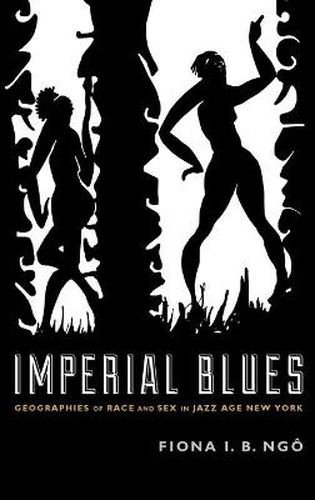Readings Newsletter
Become a Readings Member to make your shopping experience even easier.
Sign in or sign up for free!
You’re not far away from qualifying for FREE standard shipping within Australia
You’ve qualified for FREE standard shipping within Australia
The cart is loading…






In this pathbreaking study, Fiona I. B. Ngo examines how geographies of U.S. empire were perceived and enacted during the 1920s and 1930s. Focusing on New York during the height of the Harlem Renaissance, Ngo traces the city’s multiple circuits of jazz music and culture. In considering this cosmopolitan milieu, where immigrants from the Philippines, Cuba, Puerto Rico, Mexico, Japan, and China crossed paths with blacks and white slummers in dancehalls and speakeasies, she investigates imperialism’s profound impact on racial, gendered, and sexual formations. As nightclubs overflowed with the sights and sounds of distant continents, tropical islands, and exotic bodies, tropes of empire provided both artistic possibilities and policing rationales. These renderings naturalized empire and justified expansion, while establishing transnational modes of social control within and outside the imperial city. Ultimately, Ngo argues that domestic structures of race and sex during the 1920s and 1930s cannot be understood apart from the imperial ambitions of the United States.
$9.00 standard shipping within Australia
FREE standard shipping within Australia for orders over $100.00
Express & International shipping calculated at checkout
In this pathbreaking study, Fiona I. B. Ngo examines how geographies of U.S. empire were perceived and enacted during the 1920s and 1930s. Focusing on New York during the height of the Harlem Renaissance, Ngo traces the city’s multiple circuits of jazz music and culture. In considering this cosmopolitan milieu, where immigrants from the Philippines, Cuba, Puerto Rico, Mexico, Japan, and China crossed paths with blacks and white slummers in dancehalls and speakeasies, she investigates imperialism’s profound impact on racial, gendered, and sexual formations. As nightclubs overflowed with the sights and sounds of distant continents, tropical islands, and exotic bodies, tropes of empire provided both artistic possibilities and policing rationales. These renderings naturalized empire and justified expansion, while establishing transnational modes of social control within and outside the imperial city. Ultimately, Ngo argues that domestic structures of race and sex during the 1920s and 1930s cannot be understood apart from the imperial ambitions of the United States.